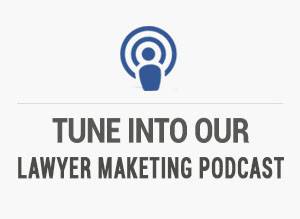I recently received an email from a client about someone who was working on a mental health project. That is, the person that sent this email to my client is working on a mental health project.
Their goal is to educate more families and individuals about mental health, wellness topics, and blah, blah, blah. They’re trying to work with websites like my client’s. Then the email lists a specific blog post and says that I noticed it would be a great resource if you would link to our page psychcentral.com.
A lot of our clients will forward these to us and ask, should we link to this? Will this benefit us in any way? What is this email?
I realize that a lot of people don’t quite understand what these emails are or why they’re receiving these emails or what the benefit or the pros and the cons are.
What Are These Emails?
This email is probably from a search engine optimization company. You could tell because the website is psychcentral.com, but the email is sent from MariaMiguel746@gmail.com.
Usually, if it were a legitimate thing, it would come from a psychcentral.com email address. Now, it doesn’t mean it’s not legitimate, but it means that this is probably sent from a company that’s working for psychcentral.com to boost their rankings.
And what they’re trying to do is they’re sending out emails, and this is cool. This is a classic outreach campaign for search engine optimization. They’re trying to find websites that will add a link on their website to the psychcentral.com website.
Why Do These Companies Do That?
Now, why is that important? In Google, one of the most important factors that determine where you rank, how well you rank, and how many pages on your website rank on the first page of Google is how many backlinks and referring domains you have.
Now, the difference between the two is if you have a link on five different pages on a website that’s five links, but only one referring domain. So why is this important?
Well, Google looks at websites linking to you as if the websites are voting for you. They’re kind of vouching for you, giving you credibility.
How Other Companies Utilize This?
Let me give you a really easy example. Let’s say the New York Times links to your website. The New York Times is a pretty official website. Google understands that authoritative sites like the New York Times have lots of content.
They have lots of links that are going to them. They’ve been around for a long time. Google understands that typically sites these authoritative will not link to spam content. They won’t link to crappy websites.
If the New York Times links to your website, then Google looks at that and says, okay, we know the New York Times is pretty authoritative, so anyone that they link to has got to have some level of credibility. Because you get a link from the New York Times, that’s going to boost your rankings up a little bit.
This happens on many different levels. Obviously, the more powerful a website is, the more powerful the link juice, as they call it, will be. You’ll probably benefit more from a website like the New York Times than you would from Bob’s website.
How These Emails Work
What ends up happening is that these search engine optimization companies are trying to get links. My company does this as well, but it’s not a bad thing. I want you to understand what the purpose of this actually is.
What happens is their software that you have entered keywords into will scrape all the websites. They’ll find the email addresses of the website owners, and they have a template email that inserts the URL of your website and the URL of the website that they want you to link to.
It’s a numbers game. They know that maybe 2% or 3% of the people that they send this email to will link to the website.
What You Should Do When You Get This Email
Will, it hurt you to link to the website? No, it probably won’t. If it’s a spam website, it might. Obviously, you don’t want to link to anything that’s related to porn, gambling, pharmaceuticals, or anything like that. You typically want to stay away from linking to those sites.
Linking to them probably won’t benefit you either. With these types of things, I typically tell my clients, let’s pass on it because we don’t gain anything from linking to this website, but a lot of people don’t really know what these links are. They don’t know why people are doing it. They don’t know if it’s going to help them or hurt them.
If you get emails like this, and it’s typically a template saying, “I love your blog. I was reading this post, and I think that this link would be a really good resource to add to your blog post.” That’s all they’re trying to do. They’re trying to get you to add a link from your blog post to their post.
If you’ve added these links before, it’s probably not the end of the world, but it’s probably not going to help you either. We typically don’t do them on our clients’ websites, but if you want to, it’s up to you.








